New F8 8-Bay M.2 NVMe SSD SSD from Terramaster Coming later in 2024
I’ve recently gathered some intriguing information about the upcoming Terramaster F8 SSD and F8 SSD PLUS Desktop NAS devices. These devices are slated to launch in September 2024, though this date is still tentative. Pricing details have not been officially confirmed, but temporary Amazon pages suggest that the F8 SSD will be priced at $999, while the F8 SSD PLUS will be $1299. Both devices are set to feature eight M.2 NVMe SSD bays, and they will come in a new, much smaller casing compared to other devices in Terramaster’s portfolio. This new form factor could make them a more appealing choice for those with limited space but requiring high-performance storage solutions.
NOTE – Regarding the Terramaster NAS and SSD Giveaway
(Take from the Terramaster Competition page). HERE
1. Share your thoughts on the ideal NAS or dream storage. You can describe your ideas through written descriptions, design sketches, video introductions, or comments. Explain the features, design, user experience, security, and intelligence level that you believe an ideal NAS should have. Additionally, guess what type of NAS is shown in the image below and share your reasoning.
2. Post your thoughts and guesses on TerraMaster’s official social media (Facebook, Twitter, Instagram, YouTube), or share them on your own social media along with the event images. Invite your friends to like, comment, and share. Your feedback, ideas, and creativity, along with the exposure and engagement generated for this campaign, will serve as important considerations for prize selection.
The Prizes:
- Special prize for one winner: TerraMaster F4-424 (worth $499)
- Participation prize for 10 winners: 250GB WD RED NVMe SSD at ($69)
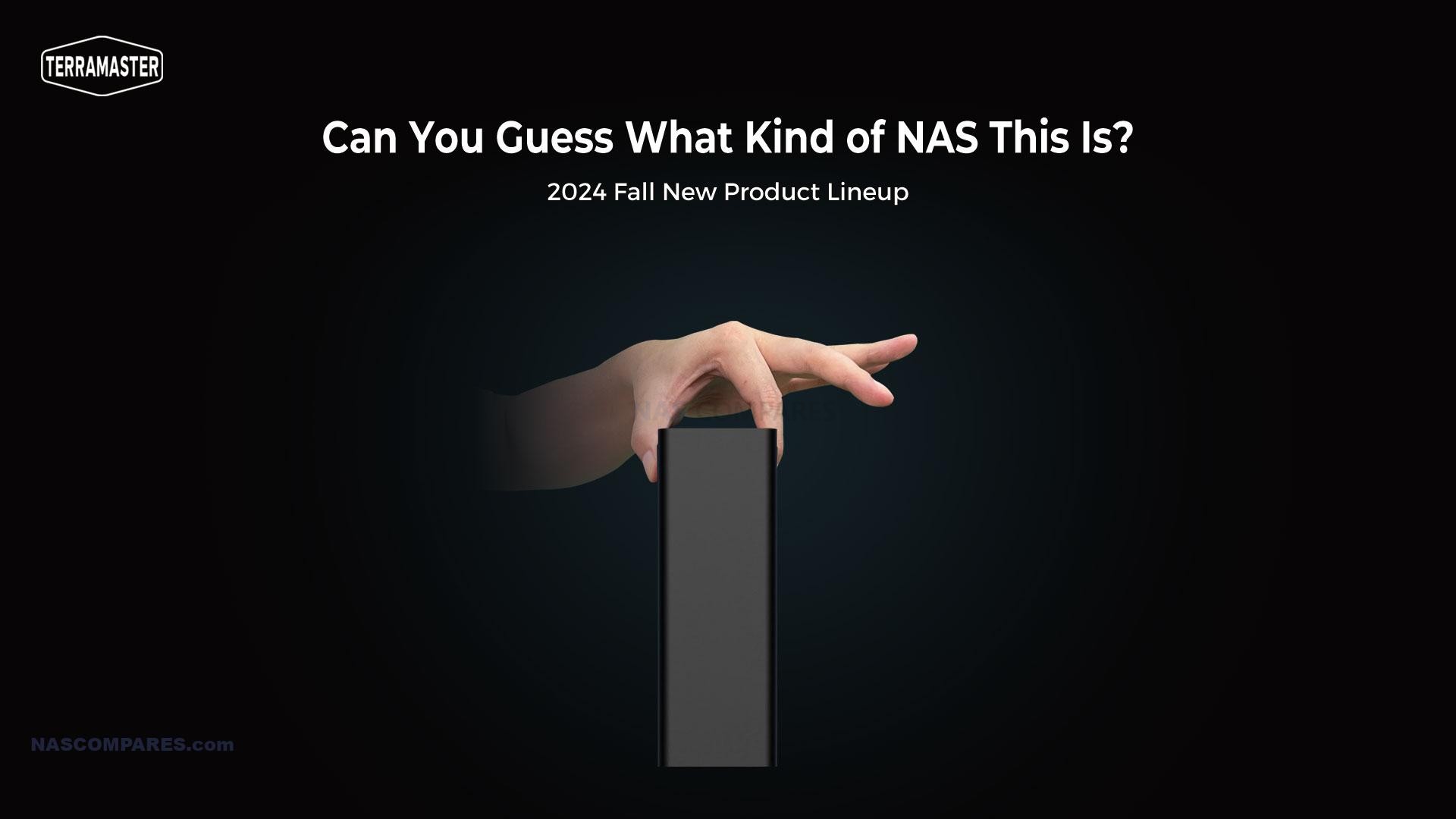
One of the standout features of these new NAS devices is the potential inclusion of 10GbE networking capabilities. However, it’s not clear if both models will feature this. The inclusion of 10GbE would significantly enhance data transfer speeds, making these NAS devices suitable for more demanding applications such as video editing and large-scale data backups. The F8 SSD and F8 SSD PLUS are mentioned to have 16GB of DDR5 memory, but it is not confirmed what each device will actually ship with or whether they will have one or two SODIMM slots. This memory detail leaves room for speculation on how these devices might cater to different market needs, potentially offering upgrade options for users who require more memory for intensive tasks.
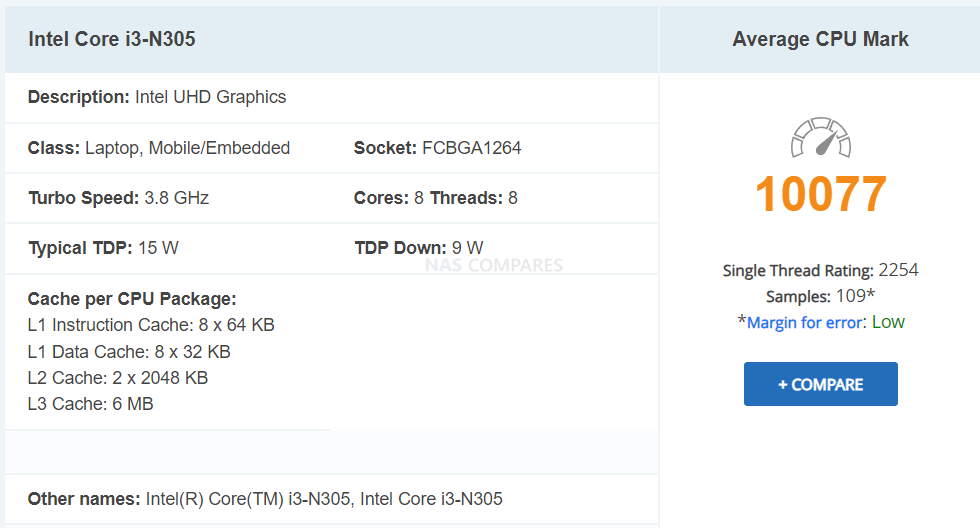
The CPU choice for these devices is particularly interesting. It is suspected that the F8 models will utilize the Intel N305 8 Core i3 Alder Lake processor. This CPU, part of Intel’s N-series, is a mobile segment processor with 8 cores and 8 threads, boasting a max turbo frequency of 3.80 GHz. Given its capabilities, this processor could make the F8 SSD and F8 SSD PLUS quite powerful for their intended use cases, especially for those needing high-speed storage and efficient processing power. The N305’s support for DDR5 memory and integrated Intel UHD graphics further enhances its suitability for a NAS device, ensuring it can handle both storage and light processing tasks effectively.
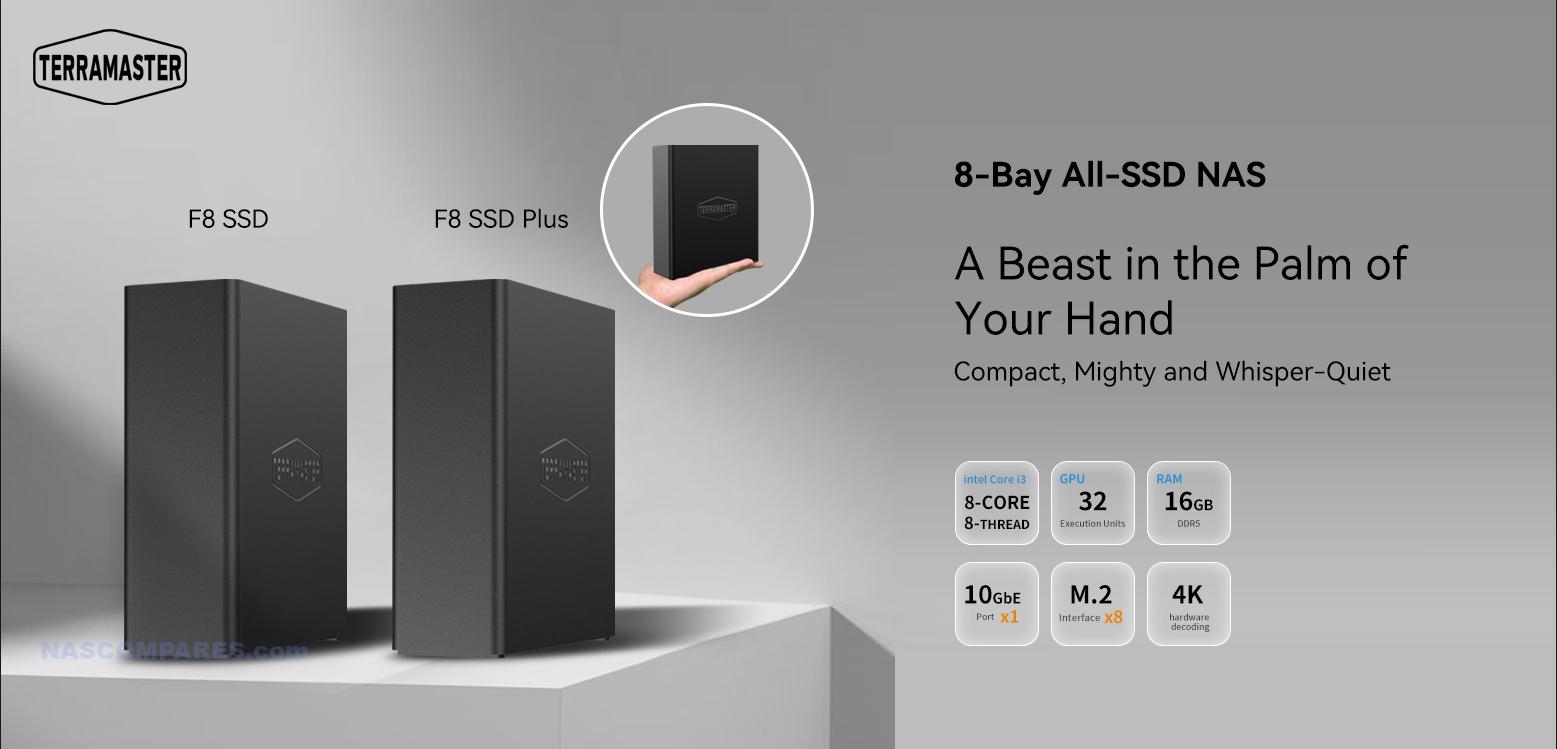
Speculating on the differences between the F8 SSD and the F8 SSD PLUS, it’s possible that the non-PLUS version might have a less powerful CPU or different networking capabilities. For instance, while the F8 SSD PLUS might feature the N305 CPU and 10GbE networking, the regular F8 SSD could potentially have a lower-end CPU, such as the N100 or N95, and perhaps only 2.5GbE networking options. These differences would help cater to different user needs and price points, making the lineup more versatile. This tiered approach allows Terramaster to offer solutions that appeal both to budget-conscious consumers and those looking for top-tier performance.
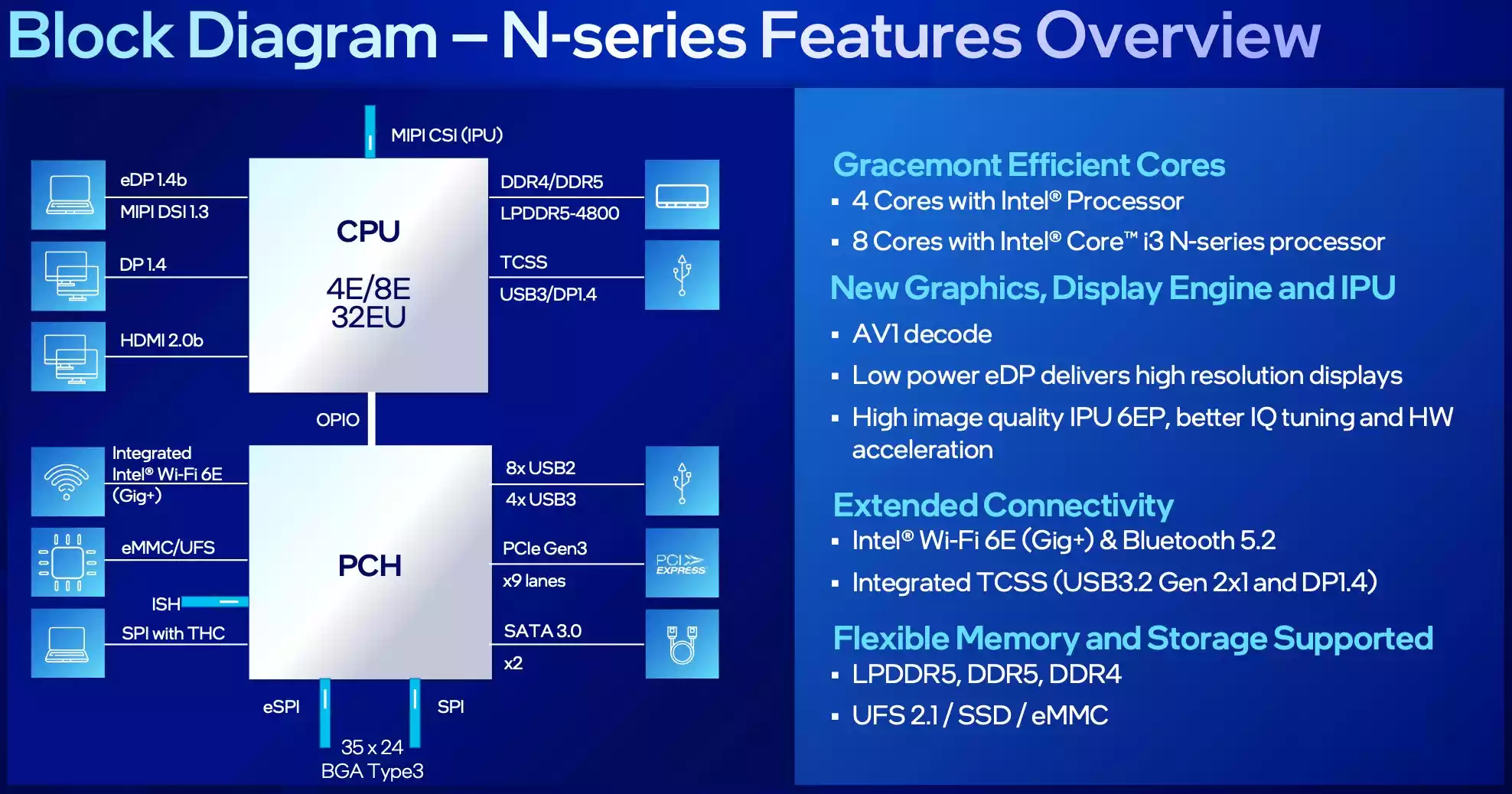
The memory configuration is another area where we might see differences between the two models. The F8 SSD PLUS, with its higher price point, could offer more advanced memory options, such as higher base memory or additional SODIMM slots for easier upgrades. This would make the PLUS model more attractive to users who plan to use their NAS for more memory-intensive applications, such as running virtual machines or high-definition video streaming. On the other hand, the regular F8 SSD might stick to a single SODIMM slot or offer less base memory to keep costs down. In 2024, the affordability of 10GbE NAS devices has significantly improved, making it much easier for consumers to access high-speed networking solutions. A prime example is the MW-N100-NAS motherboard, an ITX form factor motherboard that includes both a CPU and networking capabilities for just around $120. This motherboard features the N100 CPU, which offers a solid balance of performance and efficiency, and it also supports 10GbE networking right out of the box. The affordability and integration of these features into a single, compact motherboard highlight the broader trend of decreasing costs and increasing accessibility of high-speed networking technology. Furthermore, it is anticipated that a version of this motherboard will eventually incorporate the N305 CPU, enhancing its performance capabilities while maintaining its cost-effectiveness. This progression not only reflects advancements in technology but also underscores the growing demand for affordable, high-speed NAS solutions in both consumer and small business markets. The availability of such cost-effective hardware solutions makes it feasible for more users to upgrade their network infrastructure, ensuring faster data transfer speeds and improved overall efficiency in data management tasks.
Find out more about the Topton MW-N100-NAS Mobo HERE
Comparing these new models to the existing Terramaster F4-424 and F4-424 Pro provides some context. The F4-424 features a 4-core N95 CPU, while the F4-424 Pro uses the same N305 i3 CPU suspected for the F8 models and comes with more memory. This suggests that the new F8 devices could follow a similar pattern, with the PLUS model offering enhanced performance and features over the standard model. The memory and CPU differences between the F4-424 and F4-424 Pro might hint at similar distinctions in the F8 lineup. The F4-424 and F4-424 Pro have set a precedent for how Terramaster differentiates between base and premium models, likely reflecting a strategy they will continue with the F8 series.
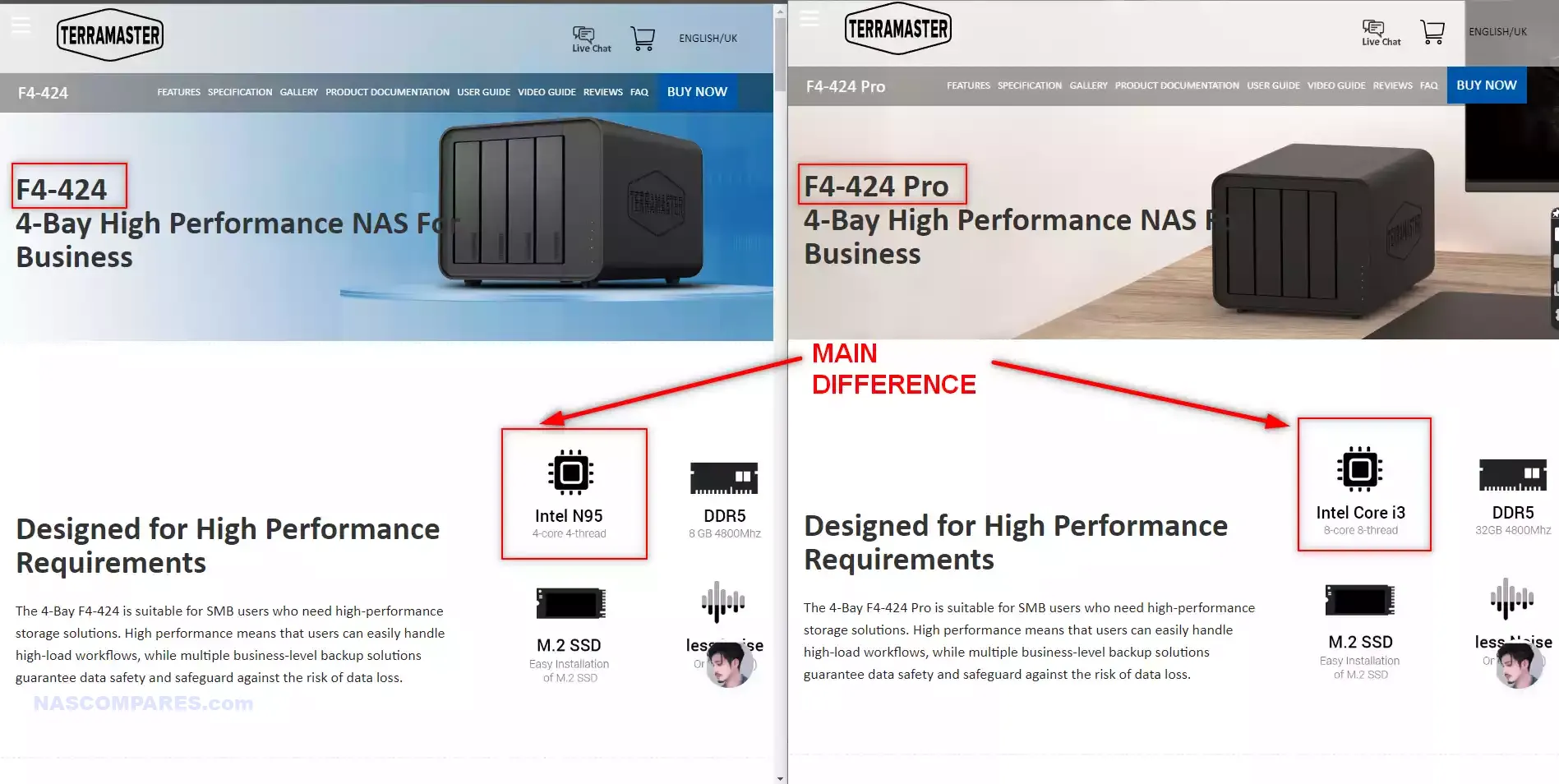
In terms of storage, both F8 SSD models are expected to have eight NVMe SSD bays, optimized for high-speed performance. This is a significant upgrade from the F4-424 series, which might appeal to users who need even more robust and faster storage solutions. The NVMe SSDs will provide much faster read and write speeds compared to traditional SATA SSDs, making these new NAS devices particularly suitable for environments where speed is critical. Additionally, the new, smaller casing for the F8 series could make these devices more suitable for home or small office environments where space is at a premium. The compact design does not seem to compromise on performance, promising a high-power solution in a small form factor. Al that said, we also have to realistically expect the M.2 NVMe SSD bays to be PCIe Gen 3×1 speed each. Not only because of system temperatures in such a confined space, but also because there are only 9 lanes to play with on the N305.
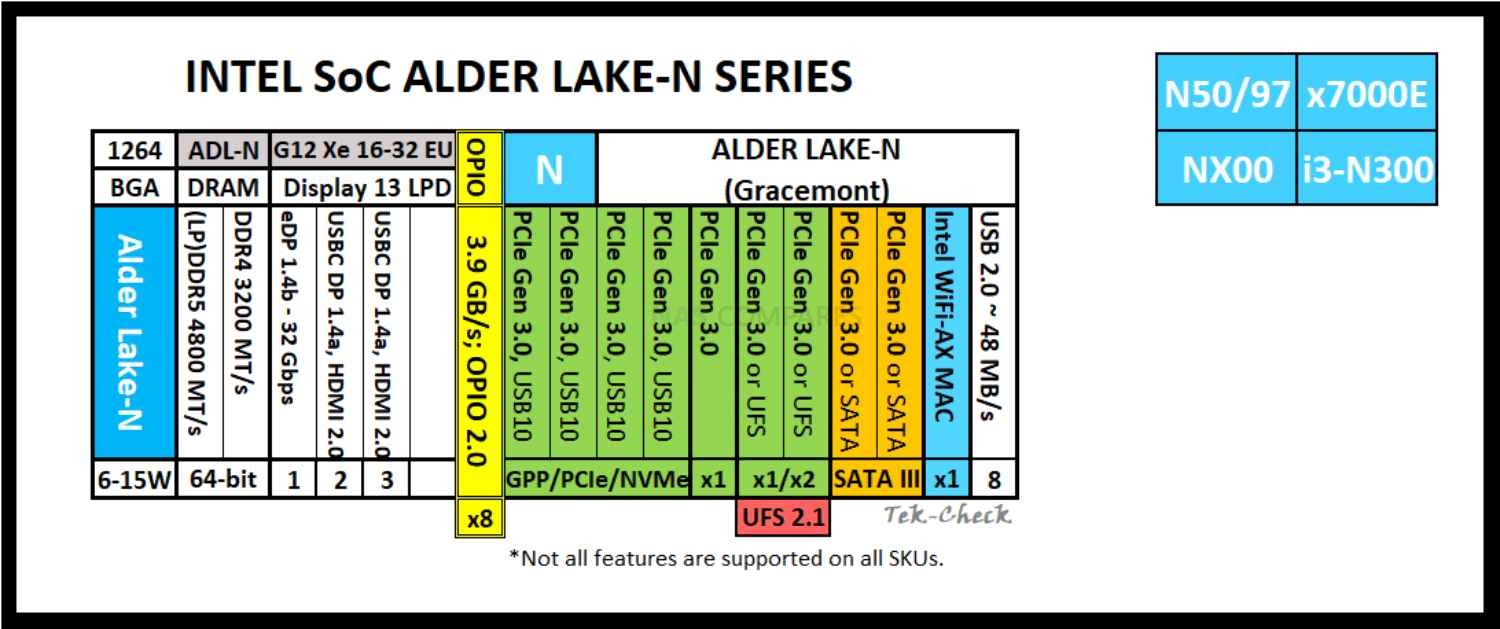
The increasing affordability of 10GbE technology also plays into the potential appeal of the F8 series. With the recently released MW-N100-NAS motherboard on AliExpress, which includes a 10GbE port and support for the N305 CPU, it’s becoming more feasible to include high-speed networking in consumer NAS devices. This trend suggests that Terramaster’s new devices will be well-positioned in the market, offering advanced features at a competitive price. As 10GbE becomes more common, users will expect to see it in mid-range and high-end NAS devices, making it a crucial feature for Terramaster to include in their new models.
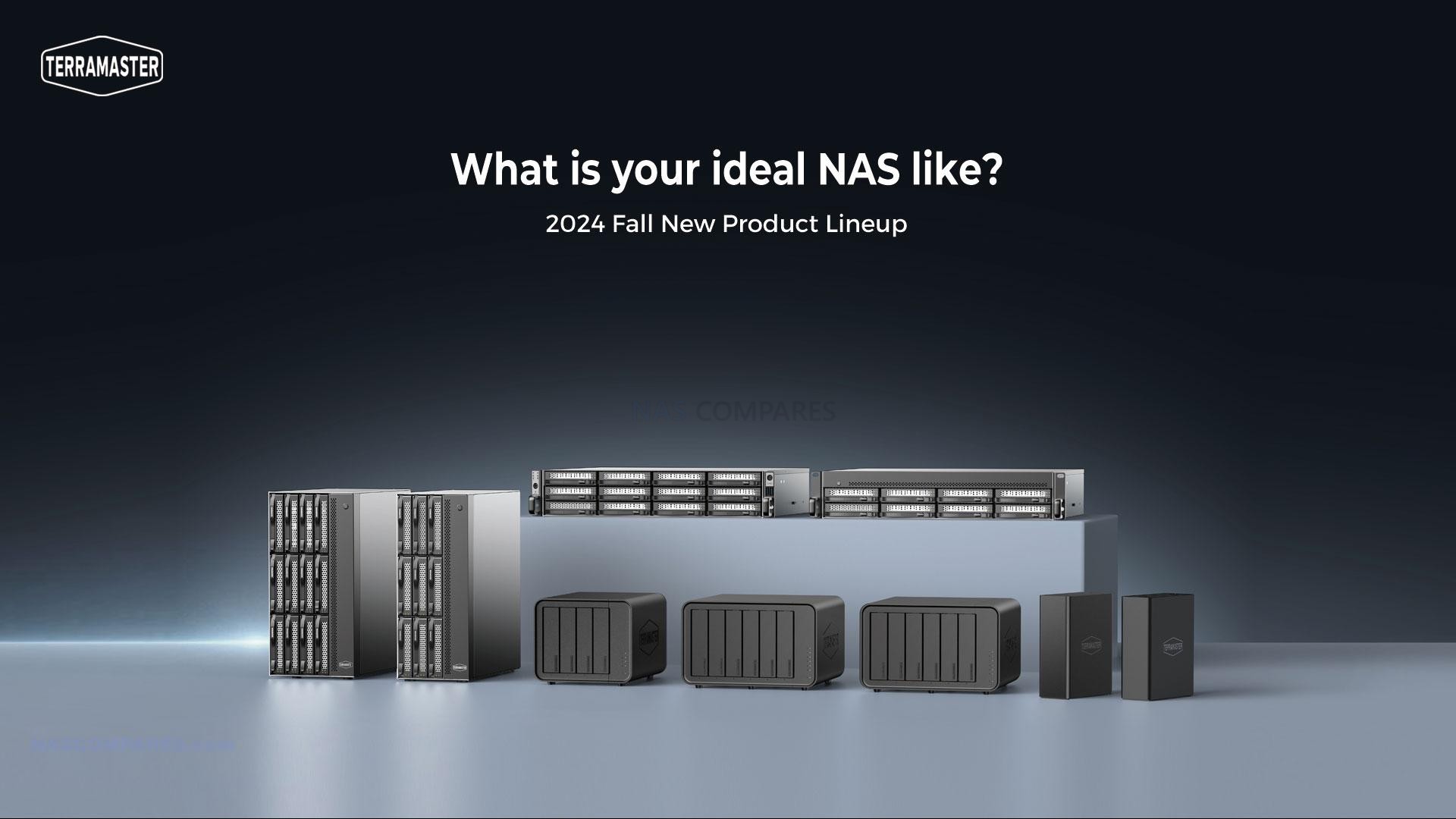
Lastly, there’s an interesting giveaway related to these new Terramaster devices. Terramaster will be giving away an F4-424 NAS and 10x M.2 NVMe SSDs in a soon to be announced giveaway related to a user survey regarding what users ‘WANT’ in their NAS systems. The giveaway invites participants to share their ideas on what their ideal NAS would feature in terms of hardware and software. Details on this giveaway are still to be confirmed, but it presents a great opportunity for users to engage with the brand and potentially win some high-performance hardware. Overall, while there are still many details to be confirmed, the Terramaster F8 SSD and F8 SSD PLUS seem poised to offer significant improvements in performance and features, potentially setting a new standard in the NAS market. As we await further official information, the speculation based on available details suggests that these devices will be a significant step forward in terms of speed, capacity, and overall functionality. This table summarizes the potential differences between the F8 SSD and F8 SSD PLUS, providing a clearer picture of how these models might differentiate themselves in terms of hardware and capabilities.
Estimated Hardware Specifications Table (MASSIVELY ‘TBC’)
| Feature | F8 SSD | F8 SSD PLUS |
|---|---|---|
| Price | $999 | $1299 |
| CPU | Intel N100 / N95 (speculated) | Intel N305 (8 Core i3) |
| Memory | 8-16GB DDR5 | 16-32GB DDR5 |
| Storage Bays | 8x M.2 NVMe SSD | 8x M.2 NVMe SSD |
| Networking | 2.5GbE x2? | 10GbE |
| Launch Date | September 2024 (TBC) | September 2024 (TBC) |
🔒 Join Inner Circle
Get an alert every time something gets added to this specific article!
This description contains links to Amazon. These links will take you to some of the products mentioned in today's content. As an Amazon Associate, I earn from qualifying purchases. Visit the NASCompares Deal Finder to find the best place to buy this device in your region, based on Service, Support and Reputation - Just Search for your NAS Drive in the Box Below
Need Advice on Data Storage from an Expert?
Finally, for free advice about your setup, just leave a message in the comments below here at NASCompares.com and we will get back to you. Need Help?
Where possible (and where appropriate) please provide as much information about your requirements, as then I can arrange the best answer and solution to your needs. Do not worry about your e-mail address being required, it will NOT be used in a mailing list and will NOT be used in any way other than to respond to your enquiry.
Need Help?
Where possible (and where appropriate) please provide as much information about your requirements, as then I can arrange the best answer and solution to your needs. Do not worry about your e-mail address being required, it will NOT be used in a mailing list and will NOT be used in any way other than to respond to your enquiry.

|
 |
| Where to Buy a Product | |||
|
|
    
|

|
VISIT RETAILER ➤ |
 |
    
|

|
VISIT RETAILER ➤ |
We use affiliate links on the blog allowing NAScompares information and advice service to be free of charge to you. Anything you purchase on the day you click on our links will generate a small commission which is used to run the website. Here is a link for Amazon and B&H. You can also get me a ☕ Ko-fi or old school Paypal. Thanks! To find out more about how to support this advice service check HERE
WHY IS PLEX A BIT S#!t NOW? IS 2026 JELLYFIN TIME? (RAID Room)
Synology FS200T NAS is STILL COMING... But... WHY?
Gl.iNet vs UniFi Travel Routers - Which Should You Buy?
UnifyDrive UP6 Mobile NAS Review
UniFi Travel Router Tests - Aeroplane Sharing, WiFi Portals, Power Draw, Heat and More
UGREEN iDX6011 Pro NAS Review
Access content via Patreon or KO-FI
Discover more from NAS Compares
Subscribe to get the latest posts sent to your email.


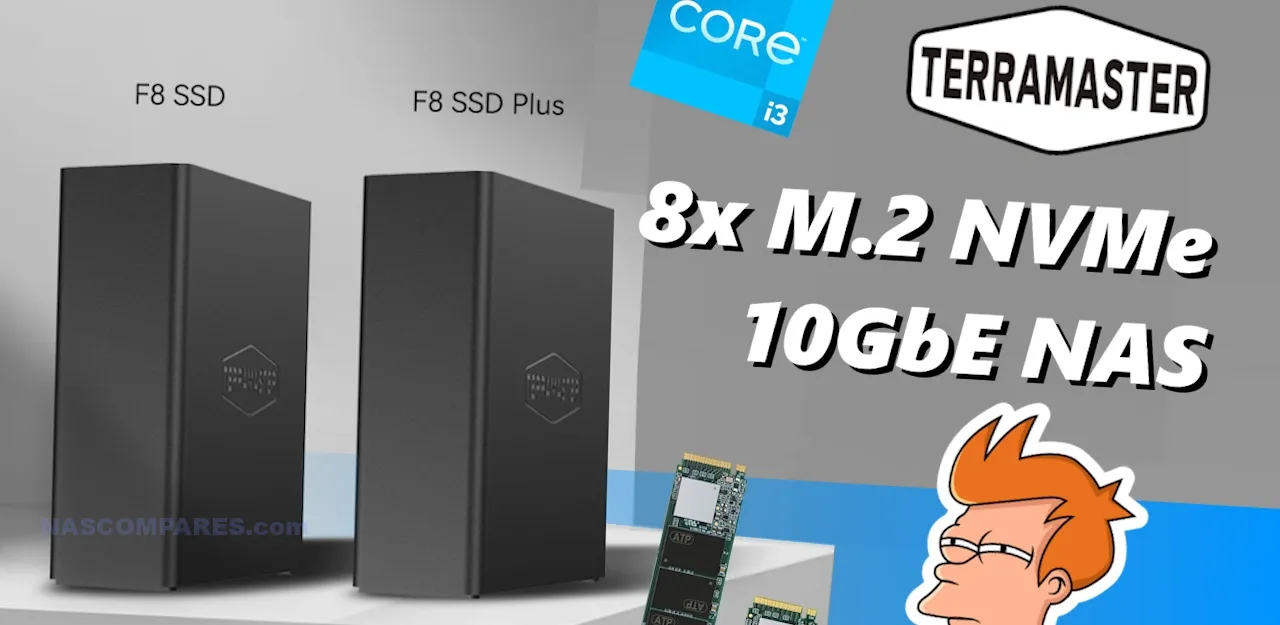
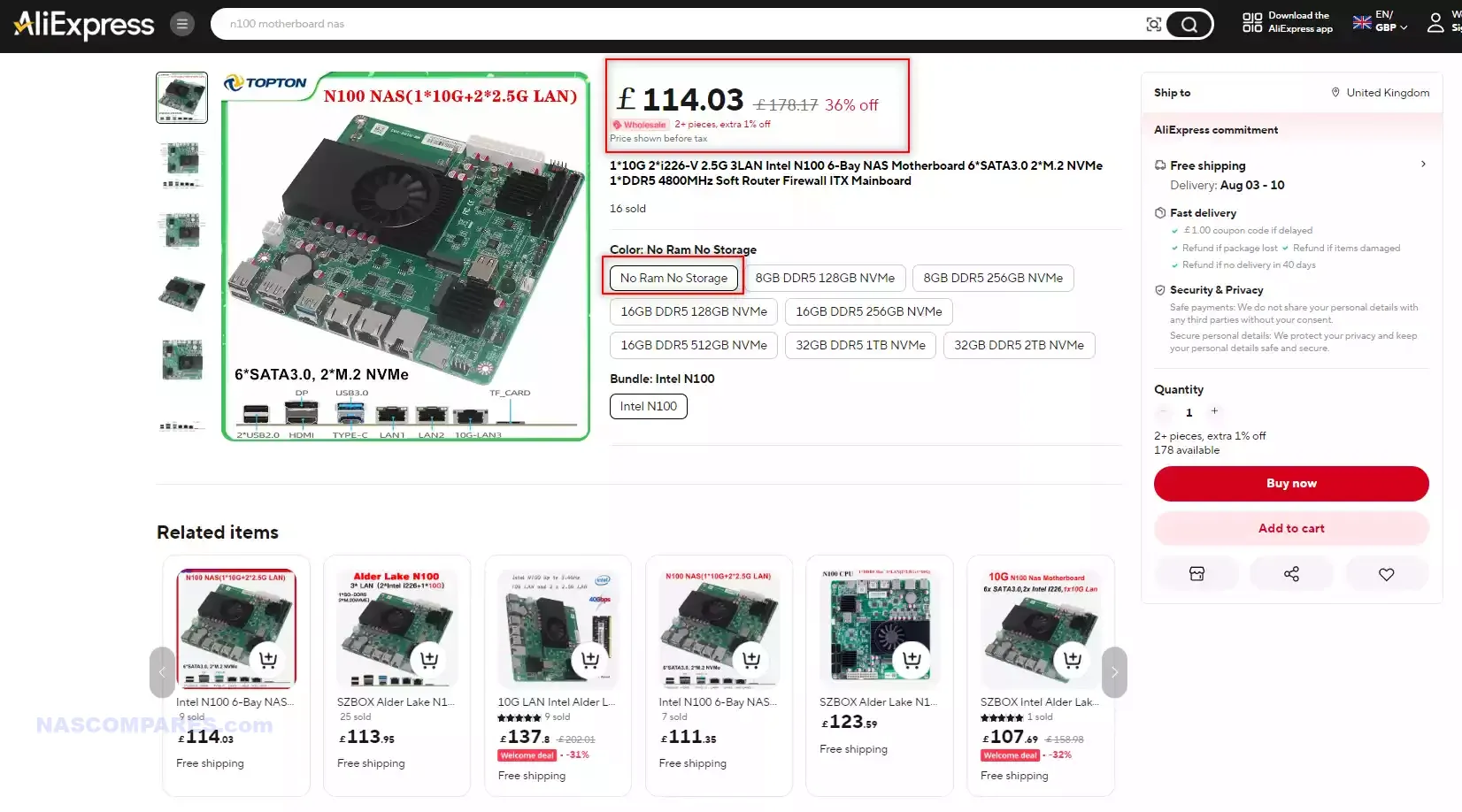



DISCUSS with others your opinion about this subject.
ASK questions to NAS community
SHARE more details what you have found on this subject
IMPROVE this niche ecosystem, let us know what to change/fix on this site